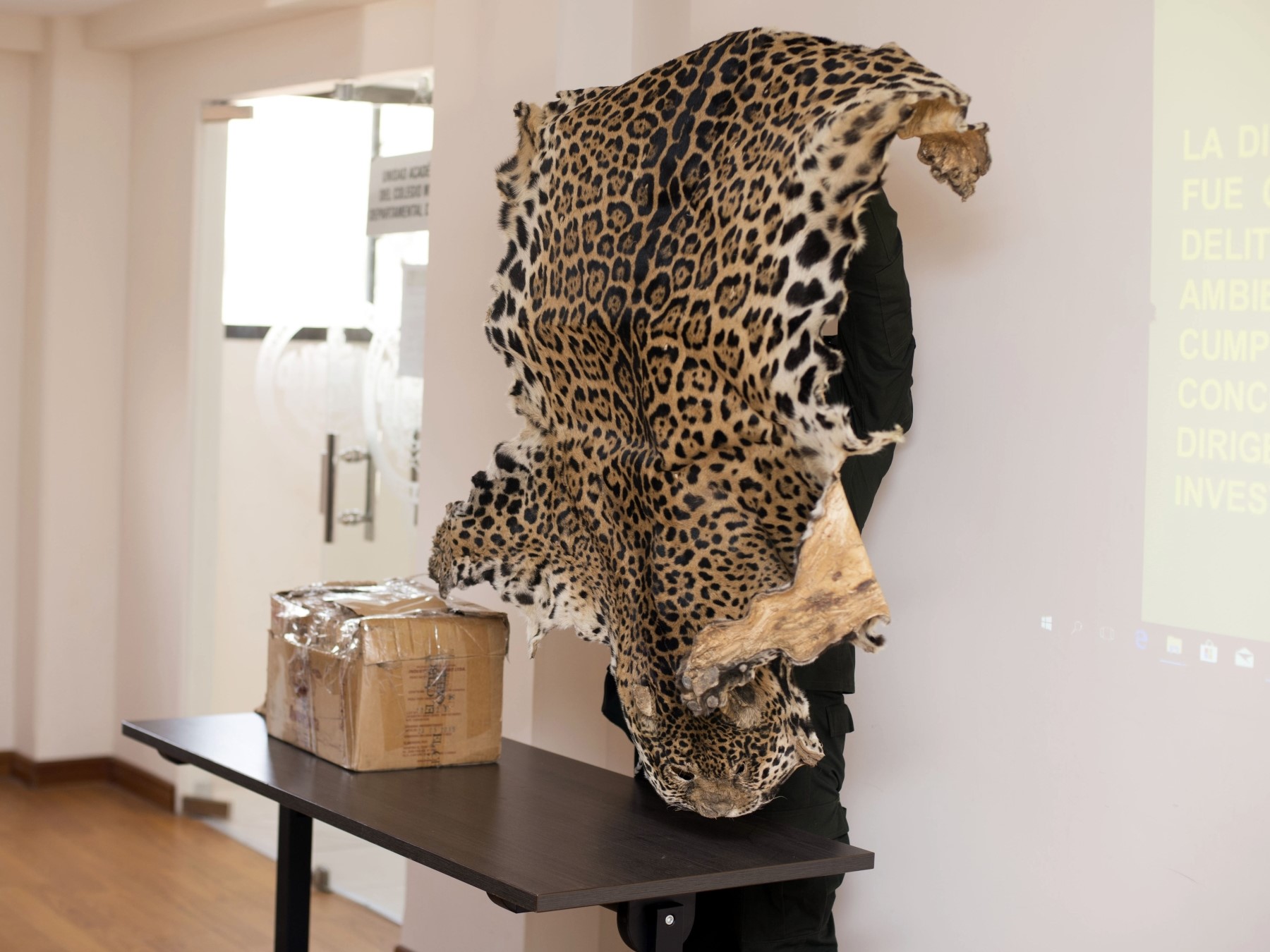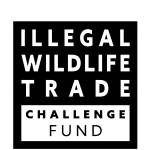The battle against jaguar trafficking

POFOMA officer holding a confiscated jaguar skin. Credit - Omar Torrico, WCS.
A setback leads to two important policy changes for the Bolivian police in the fight against jaguar trafficking
It began with an online advertisement offering a hat made from jaguar skin, which we immediately reported to our primary government partner, the Forestry and Environmental Police (POFOMA).
The jaguar is a keystone species and a cultural icon in Bolivia. Unfortunately, jaguars are currently facing the gravest illegal trafficking crisis since the ban on wildlife skin trade. Recent demand from Asian markets for jaguar teeth has resulted in over 200 documented jaguar deaths in Bolivia, threatening jaguar populations. To stop this, the Wildlife Conservation Society (WCS) Bolivia and POFOMA have been collaborating over the last five years in counter wildlife trafficking activities, including capacity building and online monitoring efforts.
Upon receiving our report, POFOMA intervened at the shop in Trinidad, Beni, where the jaguar skin hat was no longer for sale, but they traced this and other jaguar skin products back to the local Mocovi Prison, where artisan inmates made jaguar products to be sold at locations in Trinidad. With technical support from WCS, POFOMA reported the issue to Bolivian Police authorities, resulting in a memorandum from the National Director of the Penitentiary Regime of the Bolivian Police in November 2022. The memorandum instructed Mocovi prison and all the other 35 penitentiary centres in Bolivia to rigorously control visitors and inmates regarding the entry and trade of wild animals, their parts, or derivatives prohibited by law, including the jaguar. Less than a month later during a routine inspection, POFOMA seized a jaguar skin without resistance, that was entering Mocovi Prison. It was now clear to everyone that the trade of jaguar skins is illegal, and that the Police force had straightforward directives on how to act.
"Online monitoring of jaguar trafficking plays a pivotal role in early detection."
POFOMA also recognised the importance of support from other police units in areas where they have limited presence or none at all, promoting a memorandum in February 2023 instructing all 41 units of the Bolivian Police to supervise, control, and act adequately when encountering illegal wildlife trafficking cases. This memorandum specifies that non-compliance will result in the application of disciplinary measures within the Bolivian Police. This is a significant milestone for combating illegal wildlife trafficking.
Online monitoring of jaguar trafficking plays a pivotal role in the early detection of such cases, enabling law enforcement institutions to respond effectively. We have conducted a comprehensive multi-lingual, multi-platform investigation into the online trade of jaguar parts, providing authorities with a robust method for monitoring online platforms. Furthermore, this case underscores the importance of collaborating with government partners through building enduring relationships and trust with governmental institutions.
Another essential factor in driving transformational change is resilience in the face of setbacks. Even when POFOMA did not locate the specific jaguar skin hat they initially targeted, they resolutely pursued information and traced the jaguar parts back to their source. Their determination transformed a setback into two crucial official memorandums, ushering in a substantial and enduring enhancement in the Bolivian Police's performance in countering wildlife trafficking.
Written by Mariana Da Silva Loayza and Robert B. Wallace. For more information on this IWT Challenge Fund Main project IWT080, led by WCS, please click here.

 Back
Back